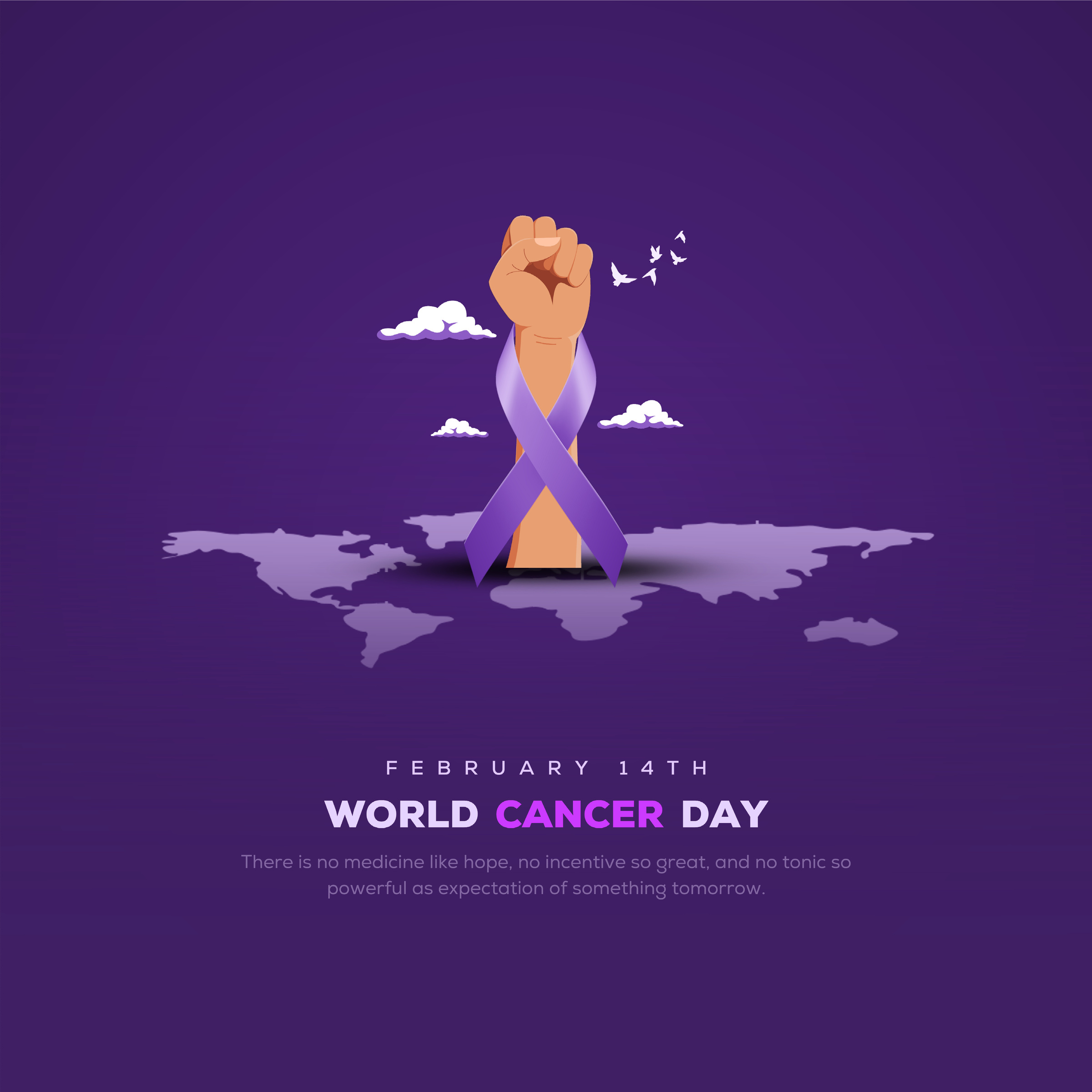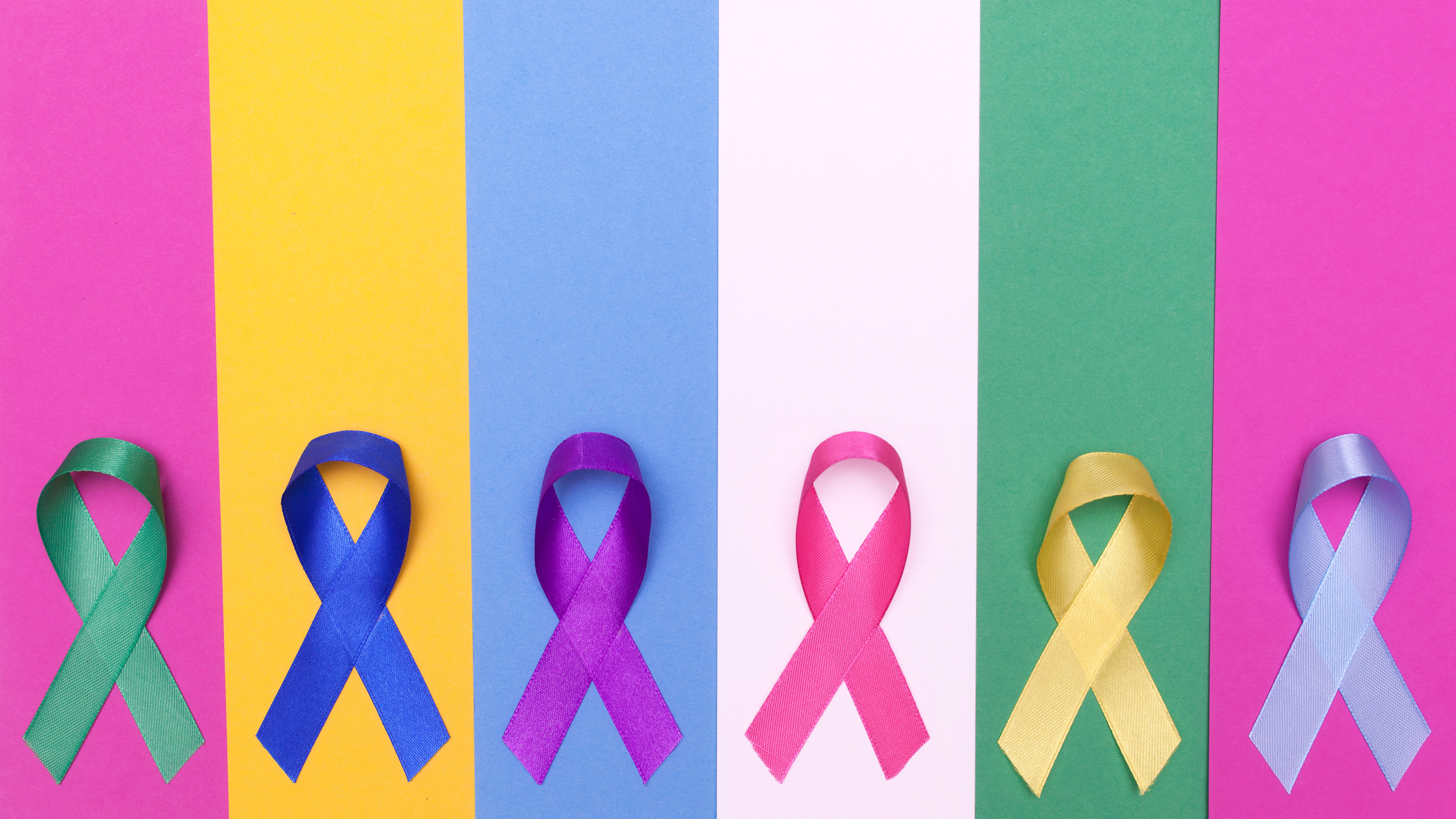
World Cancer Day 2024: Tackling the Global Cancer Burden
Cancer cases are rising. By 2050, they'll skyrocket. This World Cancer Day, discover how cutting-edge science and personalized medicine are pivotal in the fight for a cancer-free future. Read on for hope, innovation, and action.
A Growing Pressure on Healthcare Systems Worldwide
Ahead of World Cancer Day, the World Health Organization (WHO)'s International Agency for Research on Cancer (IARC) released new estimates on the global burden of cancer. These figures not only shed light on the increasing number of cancer cases and deaths but also on the disproportionate impact on underserved populations and the urgent need to address cancer inequities worldwide.
In 2022, there were an estimated 20 million new cases of cancer and 9.7 million deaths. About 53.5 million people were living within five years of a cancer diagnosis. Approximately one in five people develop cancer during their lifetime, with around one in nine men and one in twelve women dying from the disease.
A global WHO survey on universal health coverage and cancer revealed that only 39% of participating countries included the basics of cancer management in their financed core health services. Only 28% of countries also covered care for people who require palliative care.

Innovation in Oncology: Hope Through Research
The Three Most Common Cancers in 2022
The latest estimates of the ten most common types of cancer account for about two-thirds of all new cases and deaths worldwide. Lung cancer topped the list of the most frequently occurring cancers, followed by breast cancer and colorectal cancer. The re-emergence of lung cancer as the most common type is likely related to persistent tobacco use in Asia.
The Role of Omics in Modern Cancer Research
Omics technologies, which allow comprehensive analyses of molecular networks in the body, play an increasingly significant role in oncology. They enable a deeper understanding of the molecular basis of cancer and lead to personalized therapy approaches.
Quote of the Day
Dr. Bente Mikkelsen, Director of the Department of Noncommunicable Diseases at WHO, explains:
 WHO’s new global survey sheds light on major inequalities and lack of financial protection for cancer around the world, with populations, especially in lower income countries, unable to access the basics of cancer care.
WHO’s new global survey sheds light on major inequalities and lack of financial protection for cancer around the world, with populations, especially in lower income countries, unable to access the basics of cancer care.
An Increasing Burden by 2050
By 2050, over 35 million new cases of cancer are predicted, a 77% increase from the estimated 20 million cases in 2022. This growing cancer burden reflects both population aging and growth, as well as changes in people's exposure to risk factors, many of which are associated with socioeconomic development. Tobacco, alcohol, and obesity are key factors behind the increasing incidence of cancer, with air pollution remaining a significant environmental risk factor.
The drastic increase in the cancer burden will not be evenly distributed across countries. "Those with the fewest resources to manage their cancer burden will bear the brunt of the global cancer burden," says Dr. Freddie Bray, Head of the Cancer Surveillance Branch at IARC.
The global community faces the challenge of improving cancer care and reducing inequities - a task that requires innovation, collaboration, and political will. World Cancer Day 2024 calls on us to rise to this challenge and ensure equitable and accessible cancer treatment for every person around the globe.
Pioneering Oncology Solutions for Patient Needs
Addressing the Escalating Global Cancer Crisis
With a significant rise in cancer cases worldwide, particularly notable with an 80% increase in the under-50 age group since 1990, the urgency in advancing oncology cannot be overstated. On World Cancer Day, the dedication to fighting cancer is reaffirmed by focusing on making oncology a key strategic priority.
Meeting the Unmet Needs of Cancer Patients
The commitment to patient needs drives the pursuit of therapeutic innovations, with a focus on developing treatments for challenging cancers such as digestive system cancers, gliomas, hematological cancers, and pediatric cancers. Research and development are centered on two main approaches: immuno-oncology and targeted therapies.

An Ambitious Innovation Strategy Against Cancer
The ambition to be a leader in oncology innovation is clear, with a strategy aimed at creating new therapeutic options for patients to benefit as many people as possible. This year has seen the approval of new treatments in oncology in various global regions, a reflection of the dedication to addressing rare and aggressive forms of cancer.
Targeting IDH-mutated Cancers
Research is concentrated on molecules that specifically target IDH mutations in both solid and hematological cancers. These therapies are designed to halt the growth or spread of tumors by focusing on molecular anomalies or mechanisms crucial for the proliferation of cancer cells.
Collaborating with Patients for Enhanced Care
The belief in the power of collaboration with patients throughout the medicine's life cycle is strong, leading to better care and supportive solutions that accompany patients throughout their cancer journey. Emphasis is placed on working closely with patients and the organizations that represent them to improve outcomes in oncology.
Sharing Patient Experiences: Stories of Hope and Struggle
A series of personal stories from patients dealing with cancer, as Servier emphasizes on the occasion of World Cancer Day, provides an intimate look into their experiences. These stories highlight the emotional roller coaster, the fears, hopes, and practical advice that come with battling cancer, as well as how research plays a role in their lives and vice versa
The Future of Cancer Care: Omics, Machine Learning, and Personalized Medicine
The Revolutionary Impact of Omics Technologies
The field of omics technologies, encompassing genomics, proteomics, metabolomics, and more, has revolutionized our understanding of cancer. These technologies provide an unprecedented look at the molecular makeup of tumors, revealing the complex interplay of genetic mutations, protein expression, and metabolic pathways that drive cancer progression. By analyzing the complete set of data that omics provides, researchers and clinicians can identify specific biomarkers and therapeutic targets, leading to more effective and individualized treatment strategies.
Personalizing Treatment with Precision Oncology
The insights gained from omics technologies are at the core of personalized medicine, also known as precision oncology. This approach tailors treatment to the unique genetic profile of both the patient and the tumor. Personalized medicine has the potential to improve outcomes by selecting the most effective therapies based on a patient's specific cancer characteristics, reducing the trial-and-error approach of traditional treatment regimens.
Machine Learning: A New Ally in Cancer Diagnosis and Prognosis
Machine learning, a subset of artificial intelligence, is transforming cancer care by providing tools that can analyze complex datasets much more efficiently than humans. By recognizing patterns and predicting outcomes from large volumes of omics data, machine learning algorithms can assist in early cancer detection, predict patient responses to various treatments, and forecast potential relapse. This technology is becoming increasingly valuable in clinical decision-making, offering a more nuanced understanding of cancer behavior and treatment responses.
The Synergy of Machine Learning and Omics in Research
The synergy between machine learning and omics is particularly powerful in cancer research. Machine learning algorithms can sift through the vast amounts of data generated by omics studies to identify potential drug targets, understand resistance mechanisms, and even suggest novel therapeutic combinations. This partnership is paving the way for breakthroughs that could significantly alter the landscape of cancer treatment.
The Promise of Personalized Medicine in Oncology
Personalized medicine is not just a futuristic concept but a rapidly growing reality in oncology. By integrating patient-specific information from omics analyses with machine learning techniques, personalized medicine can offer more precise, predictive, and preventive healthcare. It allows for treatments that are more effective and have fewer side effects, improving the quality of life for cancer patients.
The Ethical and Practical Considerations
As we embrace these cutting-edge technologies, it is essential to consider the ethical and practical implications. Issues such as data privacy, equitable access to personalized treatments, and the need for robust databases that represent diverse populations must be addressed. Ensuring that all patients can benefit from the advancements in omics, machine learning, and personalized medicine is a challenge that must be met with thoughtful policies and inclusive practices.
A New Era of Cancer Care
The integration of omics technologies, machine learning, and personalized medicine is ushering in a new era of cancer care—one that is more targeted, effective, and patient-centric. As we continue to develop and refine these tools, the prospect of transforming cancer from a terminal illness to a manageable condition becomes increasingly tangible. The future of oncology is bright, with the promise of delivering care that is truly tailored to the individual, maximizing the chances of successful treatment and offering hope to millions around the world affected by cancer.
World Cancer Day 2024: Addressing the Cancer Challenge
On World Cancer Day 2024, we acknowledge the escalating burden of cancer, as reported by the WHO's IARC:
Global Statistics: In 2022, an estimated 20 million new cancer cases and 9.7 million deaths were recorded.
Healthcare Gaps: Only 39% of countries offer comprehensive cancer management, and even fewer provide palliative care.
Looking ahead, we are faced with a projected 77% increase in cancer cases by 2050. Key to tackling this challenge is the advancement of omics technologies, machine learning, and personalized medicine, which promise:
More precise understanding of cancer at a molecular level.
Enhanced diagnosis and treatment planning through AI.
Tailored treatments based on individual genetic profiles.
As we recognize the need for equitable cancer care, Dr. Bente Mikkelsen's words highlight the pressing issue: many populations lack access to basic cancer care. World Cancer Day calls for global action to address these disparities and improve cancer outcomes for all.